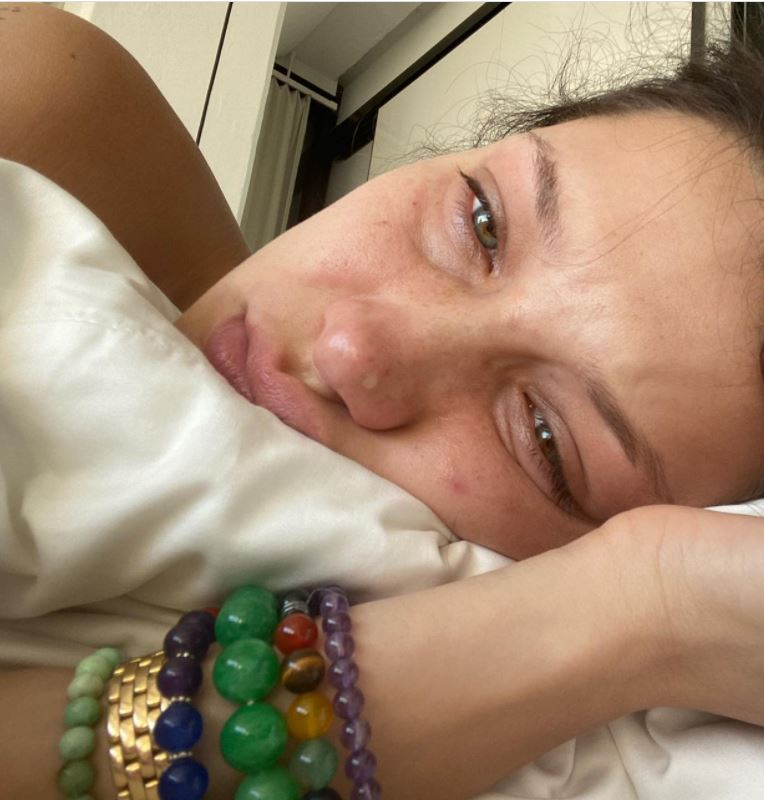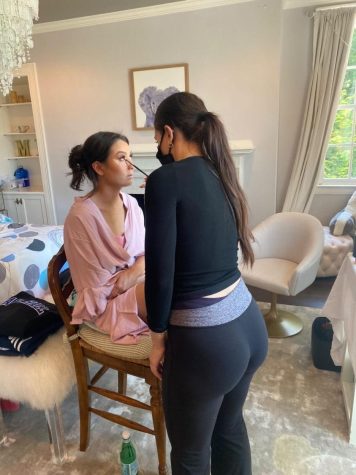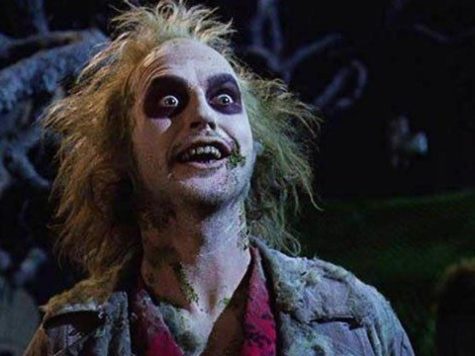UMass students respond to Bella Hadid’s Instagram post
Bella Hadid posts on her mental health and the impact of social media
Bella Hadid’s Instagram post on mental health
On Nov. 9, 2021, Bella Hadid shared her struggles with mental health through Instagram by posting eight photos of her crying, one photo of an IV in her arm and a video from Willow Smith.
In the video, Willow Smith stated, “I feel like that feeling of thinking that you’re good enough or being insecure about your art is natural, but at the same time, I feel like it’s taught.”
“I Love you and your words. It made me feel a little less alone and that’s why I’d like to post this,” said Hadid.
Hadid’s Instagram post went on to explain her own struggles with mental health and its correlation with social media.
“Social media is not real. For anyone struggling, please remember that,” said Hadid. “Self help and mental illness/chemical imbalance is not linear and it is almost like a flowing rollercoaster of obstacles…it has its ups and downs, and side to sides.”
Hadid explained how she copes with mental health and encouraged her followers to learn more about themselves to find ways to handle life’s stressors. “If you work hard enough on yourself, spending time alone to understand your traumas, triggers, joys, and routine, you will always be able to understand or learn more about your own pain and how to handle it,” said Hadid.
Various studies show that social media can cause an increase in anxiety and depression. To help reduce the impact, many people tend to take breaks and delete social media apps or unfollow accounts that make them feel bad about themselves.
“I think there’s something to be said about curating, who you follow,” said Julia Bemis, a junior psychology major. “Because a lot of the time if you’re following people that are posing in every picture, editing every picture, photoshopping, showing all of the great things that they do every day, and how much money they have, that’s going to harm your mental health.”
Bemis explained how she follows accounts that are meant to be a positive influence on body positivity and a healthy lifestyle, such as @anxietyhealer, @kenziebrenna and @saggysara.
Ari Poras, a sophomore nursing major, explained how people on social media try to create the perfect version of themselves.
“I think that social media has a whole bunch of problems, in terms of people trying to portray an image on social media of like, who they really aren’t or will live their life to try and portray this image to other people,” said Poras. “So I think social media is great in terms of staying connected with each other. But I think it also puts a lot of pressure on people, to look a certain way or do a certain thing.”
One example Poras gave was his experience during a concert where everyone in the crowd took videos and pictures instead of watching the performance. Poras added that he sees social media as something that can take away from everyday life because people are constantly trying to capture the perfect image.
Many celebrities also contribute to a social media illusion by posting edited and photoshopped images on Instagram. One celebrity Bemis believes won’t speak out about mental health issues was Khloe Kardashian.
“Khloe Kardashian is never gonna say “nothing on social media is real” because she’s one of the biggest perpetrators of it,” said Bemis.
However, the idea of whether celebrities are helpful or harmful in speaking out about social media and mental health is still up in the air.
“Celebrities are role models. That’s the kind of people that others try to be like. So we always try to hold ourselves to standards that aren’t real,” said Afnan Alazawi, a junior biochemistry major.
Ultimately, Alazawi felt Hadid’s post on struggling with mental health was positive since she is considered a role model who promoted against “reaching towards a fake reality.”
Yet, Alazawi also noticed the negative comments on Hadid’s post from users who disregarded the model’s struggles since she’s wealthy. Alazawi felt that celebrities are “more reluctant” to receive backlash and criticism for speaking out because of their portrayed luxurious lifestyle.
Before Hadid, other celebrities have spoken out about their mental health. In November, Adele spoke about experiencing postpartum depression in an interview conducted by The Face. For Suicide Prevention Day in 2020, Demi Lovato spoke out on Twitter, stating she has struggled with suicidal thoughts and depression.
“I think it’s great for celebrities to use their platform to kind of promote some of these issues,” said Poras. “But I think the bigger picture too, is just who we’re looking at as role models and the kind of the people, we’re letting influence us.”











